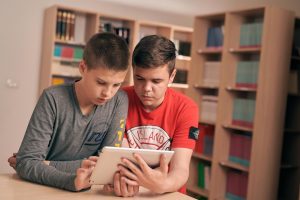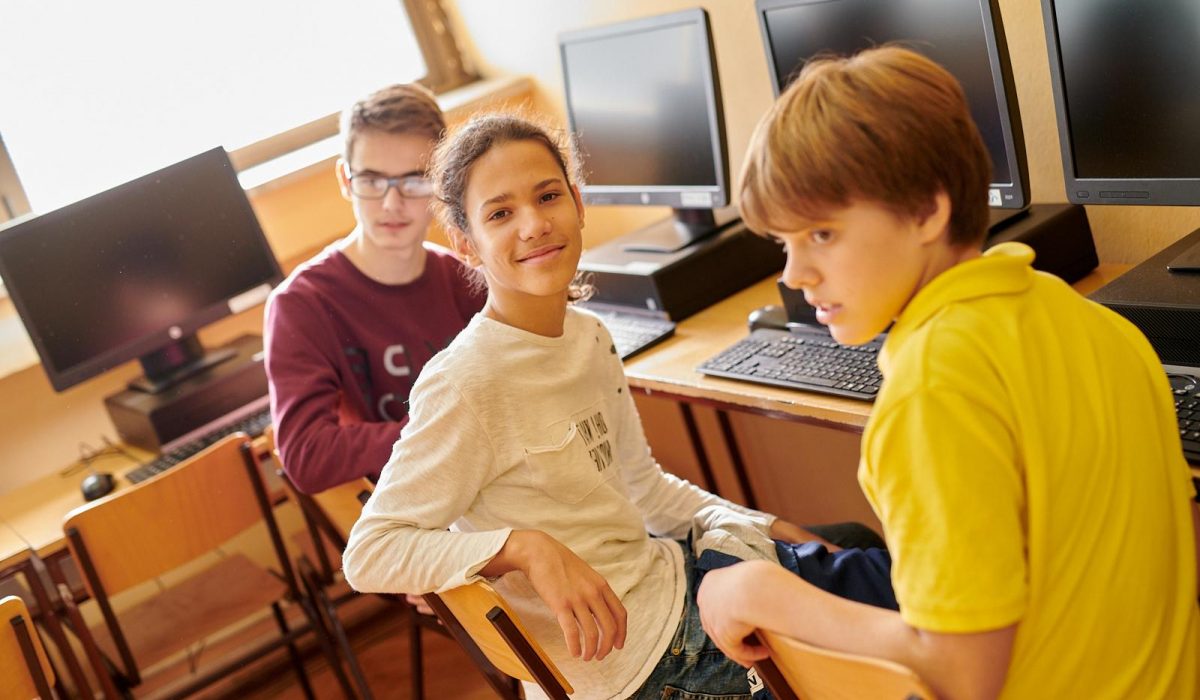
Image credit: UNICEF Montenegro & Duško Miljanić
UNICEF Montenegro recently launched the findings from a nationally representative survey with a sample of 911 primary and secondary school teachers. The survey was conducted as part of the Digital Literacy for Every Child initiative organised by UNICEF and Telenor and follows an earlier survey conducted with children and parents in 2016 using the same methodology. The teachers’ survey is a response to initial findings that one in two parents want their children’s school to provide them with information on how best to support children’s digital and media literacy.
The new survey found that only two per cent of primary and secondary school teachers in Montenegro do not use the internet, compared to 20% of parents and 9% of children aged 9–17 years. The teachers who do not use the internet are usually older (in their mid-40s or older) and one in three of them think that they are missing out by not using the internet. Almost two-thirds of teachers have profiles on social networks, most often on Facebook and Instagram, which are used mainly by younger teachers (those under 35 years of age).
The survey showed that 40% of teachers have learned something new online during the past month and have used this knowledge in their school work. The online sources most frequently used by teachers are the educational portal for teachers in Montenegro, the website of the Ministry of Education, their own school’s website and Wikipedia. When preparing lesson content teachers also use professional thematic websites in the area they are teaching. Two-thirds of teachers read print (64%) and online articles (69%) on a daily basis. Many teachers (57%) and children (50%) find it easier to obtain information online and describe online articles as more interesting than print ones. This confirms the need to make educational material and curriculum content available in digital formats.
Overall, teachers have better digital skills than children and parents but they also need additional support to be able to use more digital media in the teaching process. When using digital media in class, watching and discussing videos on the topic studied is predominant, while only half of the teachers ask their students to create their own multimedia content on the topic they are learning about. More than 80% of teachers are interested in improving their skills to apply digital pedagogy.
These findings indicate that we should introduce digital pedagogy into schools and develop digital and media literacy through all school subjects. We should also reach parents through schools, creating relevant resources to improve the digital literacy of parents, teachers and children – Osama Khogali, UNICEF Representative in Montenegro
Within the Digital Literacy for Every Child initiative, UNICEF and Telenor worked with Rome’s Sapienza University to develop digital pedagogy training for teachers which was piloted at the Štampar Makarije primary school.
The survey has shown us that access to the internet and digital technologies is very important for teachers in Montenegro and for their daily work. We are well aware of the role of digital technology in the improvement of the knowledge-transfer process and this is why Telenor is supporting the efforts of the Ministry of Education and UNICEF in that direction – Branko Mitrović, the Director of Telenor in Montenegro
More about the teachers’ survey and the findings from the children and parents’ survey
Post author: Jelena Perović
The post was originally published by UNICEF Montenegro.








